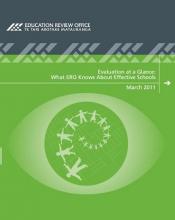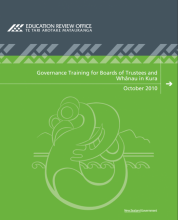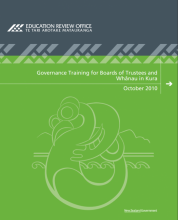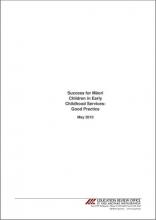Partnership with Whānau Māori in Early Childhood Services
In this evaluation Partnership with Whānau Māori in Early Childhood Education, ERO focused on the extent to which:
- services understood and valued the identity, language and culture of Māori children and their whānau, particularly when the child and whānau enter the service
- managers and educators built positive relationships with the whānau of Māori children; and
- each service worked in partnership with the whānau of Māori children.






